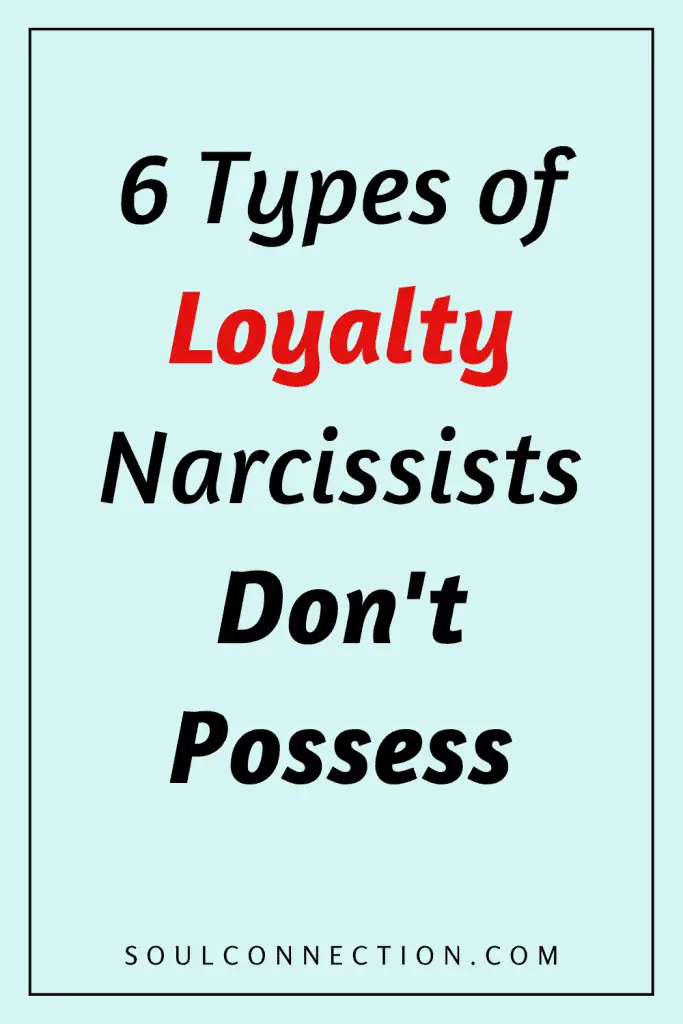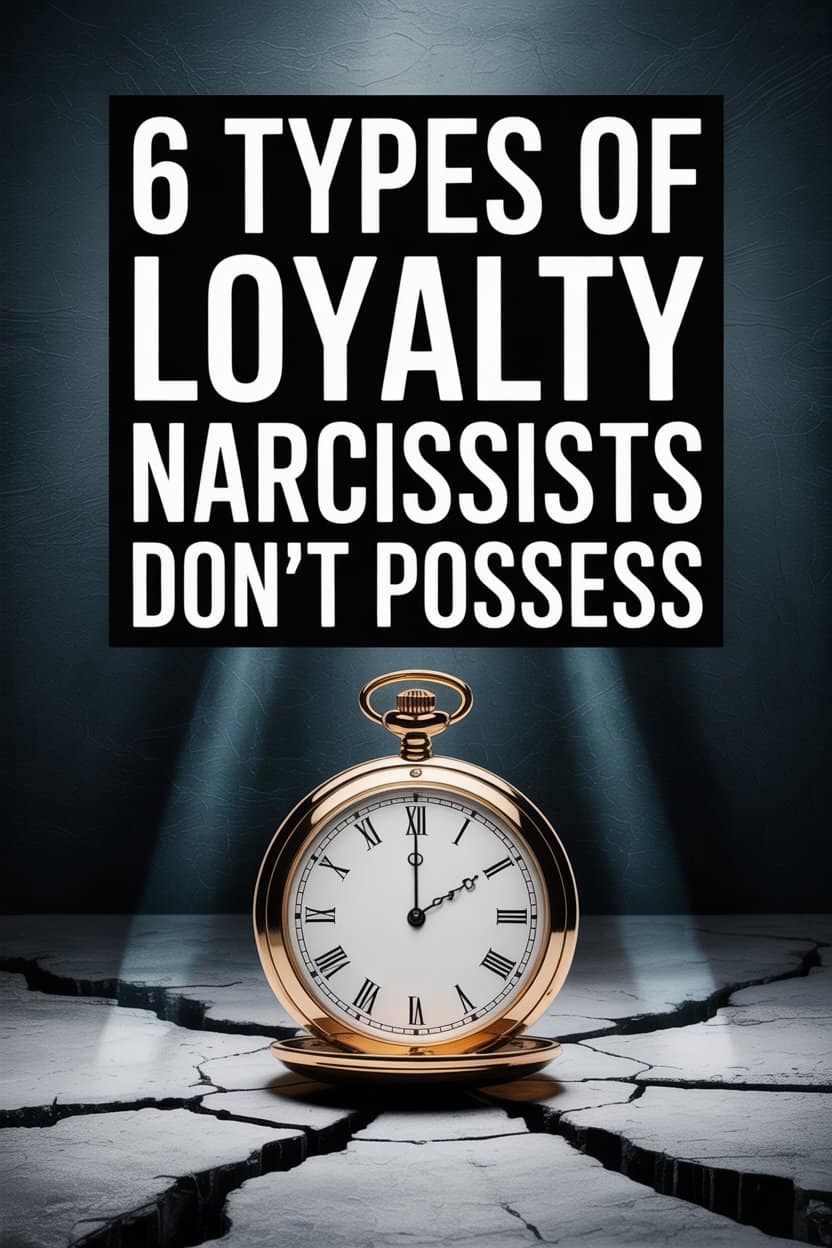Everyone loves loyalty. It’s the warm, fuzzy guarantee that someone has your back—even when you’re hangry, weird, or annoying.
But for narcissists, loyalty isn’t so much a virtue as it is a magic trick they’re sure everyone else should perform for them. When it comes to giving loyalty? Well, don’t hold your breath.
Here are six flavors of loyalty you’ll struggle to find in the narcissist’s emotional spice rack—or, let’s be honest, in their empty cupboard.
1. Emotional Loyalty
The cornerstone of any close relationship, emotional loyalty means sticking around for the messy bits—your worries, your wins, your existential crises at 2 a.m.
Instead of using your feelings as ammunition or simply ignoring them, emotionally loyal people offer empathy and understanding.
Narcissists, though? They tend to treat emotions as if they’re spam emails: irritating, unnecessary, and best deleted on sight. Your happiness is a backdrop for their spotlight. Your sadness is an inconvenience.
If you catch them offering emotional support, inspect it closely—it probably comes with strings attached, like a puppeteer yanking on your heart.
If you’re partnered with a narcissist and waiting for true emotional loyalty to bloom, you’d have better luck planting potatoes in a sandbox.
2. Consistency in Support
Ever met someone who’s your ride-or-die one day and then ghosting you the next? Welcome to the narcissist’s version of “support.”
For most of us, loyalty means being there with consistency, not just when it’s convenient or when there’s an audience.
Narcissists treat support like seasonal fashion: hot one minute, out of style the next.
They’ll wave your flag if the crowd’s watching, but when the going gets tough, you’ll find yourself alone in the trenches, waving your own flag and possibly building a signal fire.
Don’t waste time decoding the on-again, off-again loyalty puzzle. When support is conditional, it isn’t loyalty—it’s performance art.
3. Loyalty in Private
True loyalty isn’t just for show. It thrives behind closed doors, in whispers and eye-rolls, in the quiet defense when you’re not in the room. The real deal means your partner has your back even when there’s nothing to gain.
Narcissists, on the other hand, specialize in public displays of affection and private displays of criticism. Their loyalty evaporates once the crowd vanishes.
They may praise you at a dinner party, then devalue you at home—like a magician who saws their assistant in half, only to forget to put them back together.
If your partner’s loyalty seems to vanish the minute you’re out of sight, you’re not imagining things. For narcissists, “what happens in Vegas” doesn’t stay in Vegas; it’s just ammunition for next week’s argument.
4. Accountability Loyalty
Real loyalty doesn’t mean turning a blind eye to mistakes or covering up bad behavior.
It means being invested in growth—gently calling each other out, owning up when you’ve mucked up, and holding each other accountable for being decent humans.
Narcissists, meanwhile, treat accountability like an infectious disease: to be avoided at all costs. Expect deflection, finger-pointing, and more plot twists than a telenovela.
If you try to discuss a problem, suddenly it’s your fault, or better yet, it never happened.
Accountability loyalty is rare in narcissistic relationships because it threatens the illusion of perfection. Why admit fault when you can rewrite history or skip town emotionally?
5. Resilience During Rough Patches
Every relationship faces storms—sickness, job loss, family drama, that time you cut your own bangs. Loyalty is sticking it out, supporting your partner even when it’s hard (especially when it’s hard).
Narcissists are fair-weather friends, piloting the ship only when the seas are calm and the sky is Instagram-ready. Hit rough water, and they’re looking for the lifeboat—preferably one with a more adoring audience.
If your partner disappears during every crisis, it’s not bad luck. It’s a pattern. Real loyalty isn’t conditional on convenience or applause.
6. Growth-Oriented Loyalty
Healthy loyalty isn’t just about devotion—it’s about rooting for each other’s growth, even if that means change, discomfort, or the occasional awkward conversation.
A loving partner encourages new adventures and celebrates your wins, even if it means you’re outgrowing old patterns (or, heaven forbid, outshining them).
Narcissists want loyalty to look a lot like submission. Growth? Only if it benefits them. If your shine makes them feel dim, expect sabotage, criticism, or a guilt trip long enough to require snacks.
If you’re feeling stunted, it’s not you—it’s the fertilizer. Growth-oriented loyalty is water and sunlight for a healthy relationship. Without it, everything wilts.
What Loyalty Actually Feels Like
If you find yourself in a loyalty drought, there’s a good chance you’ve been loving someone far better than they know how to love you.
The absence of these types of loyalty isn’t your failure; it’s a flashing neon sign that you deserve more, not less.
Healthy loyalty isn’t a solo sport. It’s a team effort—messy, imperfect, and sometimes frustrating, but always grounded in respect. If you’re not getting it, it’s not because you’re too needy, too dramatic, or too much.
It’s because you’re with someone who simply never learned what real loyalty looks like.
Time to stop watering plastic plants. Invest your devotion where it can actually grow—starting with yourself.
You’re the one person you can always count on, and that’s not just loyalty. That’s survival.


